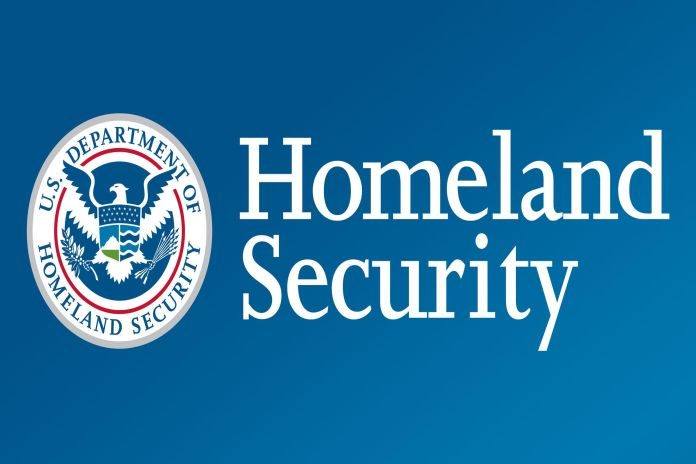-
-
- Awardees will partner with DHS to meet Homeland Security mission needs.
-
WASHINGTON, USA – The Department of Homeland Security (DHS) Science and Technology Directorate (S&T) announced that Credence ID, Hushmesh, Netis d.o.o., Procivis, SpruceID, and Ubiqu have each won a government contract to develop technologies that protect the privacy of individuals using digital versions of credentials issued for immigration and travel. These digital credential users, including immigrants and travellers, could eventually store their information in privacy-enhanced digital wallets. Since DHS interacts more frequently on a daily basis with the American public than any other federal agency or department, maintaining secure, confidential digital interactions will have a tremendous impact on the privacy, security and safety of residents across the country.
“DHS is the authoritative source of some of the most highly valued credentials issued by the US Federal Government for cross-border travel, demonstrating employment eligibility, residency status and citizenship,” said Anil John, Technical Director of S&T’s Silicon Valley Innovation program (SVIP). “The capabilities developed under this solicitation will ensure that those credentials can be stored securely and verified properly while preserving the privacy of individuals using openly developed standards that are globally acceptable, highly secure, and accessible to all.”
“US Citizenship and Immigration Services is the United States’ authoritative issuer of highly valued credentials related to citizenship and immigration. Supporting standards-based digital credentials and secure digital wallets for storing them enables us to meet our customer expectations of ease, convenience, privacy and security in an increasingly digital world,” said Jared X. Goodwin, acting chief program management and data division, service center operations, US Citizenship and Immigration Services (USCIS).
DHS provided the awards through its Privacy Preserving Digital Credential Wallets & Verifiers solicitation, which reflects the Department’s continued commitment to improving the delivery of its services in a way that both protects privacy and increases ease of use. The requirements included ensuring that DHS digital credential wallets and verifiers incorporated open, global standards that are not proprietary. These standards were established by the World Wide Web Consortium (W3C), a global standards development organization that manages the development of open standards ensuring interoperability, accessibility, internationalization, privacy and security. DHS participates as a W3C member to ensure DHS-relevant security and privacy criteria are incorporated into the standards development process.
S&T’s Silicon Valley Innovation Program issued the solicitation in partnership with US Citizenship and Immigration Services, US Customs and Border Protection, and the DHS Privacy Office. It builds on the success and global adoption of the open, standards-based digital credentialing solutions developed under its previous Preventing Forgery & Counterfeiting of Certificates and Licenses topic call, which aimed to address paper-based credentialing susceptible to loss, destruction, and counterfeiting.
Selected through a highly competitive process, each awardee is eligible for up to $1.7 million across four SVIP phases. The awardees of this first phase presented innovative solutions that have the potential to provide immediate impact to DHS:
- DHS S&T awarded $199,140 to Credence ID, an Oakland, California-based US company, which specializes in standards-based identity verification and authentication solutions for in-person and online use. The company plans to adapt their existing hardware and software credential verifier implementations to support W3C VCDM and W3C DID standards, requiring a simple software update to existing hardware readers.
- DHS S&T awarded $199,430 to Hushmesh, a Falls Church, Virginia-based US company, to adapt their technology, the Mesh, incorporating built-in cryptographic security and universal zero trust. This adaptation aims to implement distributed, scalable, and privacy-preserving key management for digital wallets and verifiers supporting W3C VCDM and W3C DID standards. Their solution will provide assurance of provenance, authenticity, confidentiality, and privacy for all data.
- DHS S&T awarded $198,849 to Netis d.o.o., a Ljubljana, Slovenia-based company, to enhance its existing MIDVA platform to support W3C VCDM and W3C DID standards. MIDVA includes a Fleet Management Platform for organizational onboarding, alongside a Mobile Verifier App. It utilizes technology such as Policy-as-a-Code foundation and integrates seamlessly with trust frameworks. The Fleet Management Platform facilitates easy onboarding, authorization, and management of verifier apps across various environments, enabling configuration of supported credentials and integration of recognized trust frameworks. This enables authorized personnel to verify users’ credentials using the Verifier App.
- DHS S&T awarded $187,285 to Procivis, a Zurich, Switzerland-based company, to enhance its existing Procivis One platform to better support W3C VCDM and W3C DID standards in digital wallets and verifiers. The platform provides flexible, privacy-respecting technology capable of accommodating various credentials, including E-IDs, mobile driver’s licenses, certificates, diplomas, and licenses.
- DHS S&T awarded $199,960 to SpruceID, a New York, New York-based U.S. company, to enhance its digital wallet and verifier capabilities to better support W3C VCDM and W3C DID standards for enterprise and public sector environments. Their software creates verifiable digital credentials prioritizing user privacy and security, ensuring safe usage across various digital wallets and interoperability across sectors like finance, healthcare, anti-fraud, and cross-border applications.
- DHS S&T awarded $197,961 to Ubiqu, a Rotterdam, Netherlands-based company, to integrate its Remote Secure Element (RSE) technology with digital wallets supporting W3C VCDM and W3C DID standards. This allows users to maintain sole control over their credentials, ensuring transparency and consent, while providing comprehensive recovery solutions. This approach facilitates a highly secure and convenient user experience for digital credential services.





